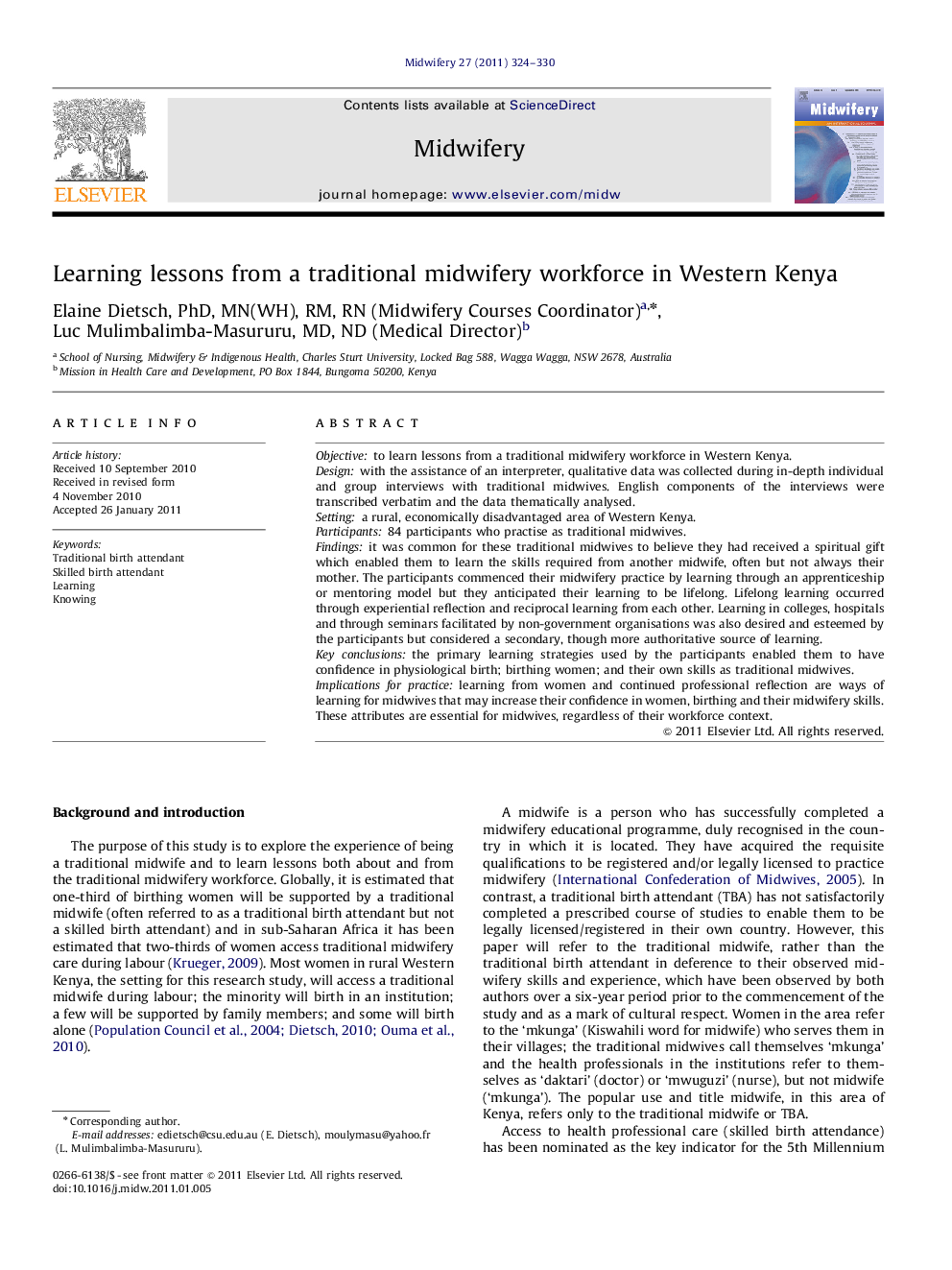| Article ID | Journal | Published Year | Pages | File Type |
|---|---|---|---|---|
| 1085055 | Midwifery | 2011 | 7 Pages |
Objectiveto learn lessons from a traditional midwifery workforce in Western Kenya.Designwith the assistance of an interpreter, qualitative data was collected during in-depth individual and group interviews with traditional midwives. English components of the interviews were transcribed verbatim and the data thematically analysed.Settinga rural, economically disadvantaged area of Western Kenya.Participants84 participants who practise as traditional midwives.Findingsit was common for these traditional midwives to believe they had received a spiritual gift which enabled them to learn the skills required from another midwife, often but not always their mother. The participants commenced their midwifery practice by learning through an apprenticeship or mentoring model but they anticipated their learning to be lifelong. Lifelong learning occurred through experiential reflection and reciprocal learning from each other. Learning in colleges, hospitals and through seminars facilitated by non-government organisations was also desired and esteemed by the participants but considered a secondary, though more authoritative source of learning.Key conclusionsthe primary learning strategies used by the participants enabled them to have confidence in physiological birth; birthing women; and their own skills as traditional midwives.Implications for practicelearning from women and continued professional reflection are ways of learning for midwives that may increase their confidence in women, birthing and their midwifery skills. These attributes are essential for midwives, regardless of their workforce context.
